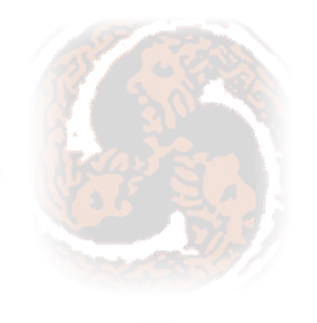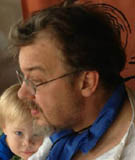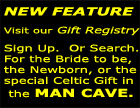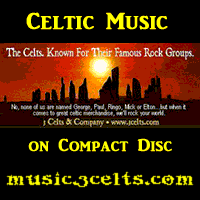3 Celts & Company
PO BOX 374
Center City, Minnesota USA
+1 651.257.6790
In 1996, tradition and original celtic art coalesced to bring you © 3 Celts & Company • Your Retail source for alternative interest books: Scottish books, irish books, celtic books. Screen printed Celtic design T-shirts, World music, Scottish or Irish Custom Handmade kilts and essentials. Enjoy.
Today we are the family run business well known in Minnesota, the Great Plains of the Midwest Region, and across the United States. Since 2001, Johnny and his family have continued to offer you these original and custom designed products:
•Our kilts are constructed from 13 ounce 100% wool.
Kilts : Custom sewn and handmade, to fit you - in your choice of over 70 in stock tartans
Use the easy to follow, step-by-step, custom kilt measurement guide.
Explore the Customer Celtic Journey Blog
•Find your Clan Surname Ancestry. We display the enduring men's modern kilt, but we can custom build your choice of kilt in the ladies pleated dance skirt or the formal ladies hostess skirt. Why rent, when you can buy? Choose a formal kit from any of our tartan Fly Plaids, or casual Tartan scarves. Finish off your kit with Kilt Essentials: kilt jewelry
•in chrome,
•in pewter,
•in silver.
•Our T-shirts are constructed from 6.1 ounce, 100% Heavyweight cotton: Double needle seam construction, and pre-washed.
•Our Hoodies and Crewnecks are off-shoulder construction, Heavy 9 ounce cotton/poly blend fleece, fully cover-seamed, with reinforced rib collar, cuffs and waistband. Quality comfort and fit T-shirts, provided from these fine mills: PORT, FRUIT and GILDAN. Choose your look on T-shirts or Hoodies from our Celtic T-shirt design gallery.
•Sample independent artists
performing World Music
- from "3 Celts & Company".
•Sample and BUY! "Original Celtic Rock Music" - from the edge of today's Celtic World artists. Independent musicians around the globe or performing at your local Public House - they shared their talent and musical gifts with "3 Celts & Company" -often in our store. No, none of them are named John, Paul, Mick or Elton, but...They'll Rock Your World!
•"Traditional Folk Music Origins" Scottish Highland Music:
Tradition and folklore set the stage with music from the Celtic nations. Let go as you drift along to an age of celts still remembered. Listen and Enjoy. Today's artists honor the reproduction of ancient melodic ballads and time measured favorites. Sample and choose the music that will carry you back - across your own Celtic Origins.
•GO MOBILE! m.3celts.com when you're on the road or in the Pub, with family or friends, sharing your interest in the Celts - by birth, by heritage or by inclination. Feel free to browse our products using the "Menu bar" or the "©McGoogle" free-find site search; you'll find your essentials here on our website or the many festival event venues we visit through out the season.
•Bring us your ideas. T-shirt custom artwork designs.
Festival and Fair
•Event services prize my work on their T-shirts and souvenir merchandise. On-site retailing and merchandising: providing proven market ideas and resources. We look forward for the chance to earn your business.
Select your items and customize then select your purchases with the "Add to Cart!" button. View your secure online "Shopping Cart" anytime during your visit, then proceed to checkout, all with our PCI-DSS complient SSL pay feature. Select your choice of payment: VISA, MasterCard, AmEx, or Discover. We welcome "personal checks" from our USA customers only.
We are pleased to present to you our vision and dedication - our passion for things Gaelic. Our hope is that you will find in these published pages the hand made original designs that will inspire your own search for that enduring Celtic legacy.
Men and Women's Formal kilt attire.
THE KILT
Although not a traditional component of national dress outside Scotland, kilts have become recently popular in the other Celtic nations as a sign of Celtic identity. Kilts and tartans can therefore also be seen in Ireland, Wales, Cornwall, the Isle of Man, Brittany, Galicia in Spain, the Trás-os-Montes region in the North of Portugal, and Normandy, as well as parts of England, particularly the North East.
Though the origins of the Irish kilt continue to be a subject of debate, current evidence suggests that kilts originated in the Scottish Highlands and Isles and were adopted by Irish nationalists at the turn of the 20th century as a symbol of Celtic identity. A garment that has often been mistaken for kilts in early depictions is the Irish lein-croich, a long tunic traditionally made from solid colour cloth, with black, saffron and green being the most widely used colours. Solid coloured kilts were first adopted for use by Irish nationalists and thereafter by Irish regiments serving in the British Army, but they could often be seen in late 19th and early 20th century photos in Ireland especially at political and musical gatherings, as the kilt was re-adopted as a symbol of Gaelic nationalism in Ireland during this period.
Tartan was worn originally in Scotland as a fashionable type of dress. All tartan was, of course, hand woven and each weaver would take it upon him or herself to create unique and attractive designs based on the colors of dyes available. Certain colors may have been more common in certain regions, but there was nothing to prohibit someone with money from importing various dyes. Certain pattern schemes may have been more common in one area than another, but nothing approaching modern clan tartans could be said to have existed.
Imagine talking to a hand weaver of tartan, a craftsman and an artist, and telling that person that you wanted them to weave the same pattern of tartan in the same colors for everyone in the region (regiment, clan, etc.). That pattern was set in stone, could not be varied from and was to be the only pattern woven for that clan. Of course they would never have taken such commands! Tartan was and still is an art form and individual weavers created a wonderful variety of tartan designs.
By the 16th century, when we begin to see the earliest type of kilted garment (the belted plaid), tartan had become characteristic of Highland Dress. Gaelic speaking Highlanders wore tartan of bright and flashy shades to show off wealth and status. They also favoured darker, natural tones that would emulate the shades of the bracken and the heather so that they might wrap themselves in their plaids and be hidden. But the colors chosen had more to do with what dyes were available to them (either locally or that they could afford to import) and personal taste than any clan affiliation.
"Kilt". Wikipedia. [https://en.wikipedia.org/wiki/Kilt]. 12 August 2025. web.
Newsome, Matthew. "Brief History of The Kilt". Albanach Archive. [https://web.archive.org/web/20020206091135/http://albanach.org/kilt.html]. (c)2000. web.
|











 Sample and Buy the CD | Celtic Music & Irish Band Merchandise
Sample and Buy the CD | Celtic Music & Irish Band Merchandise